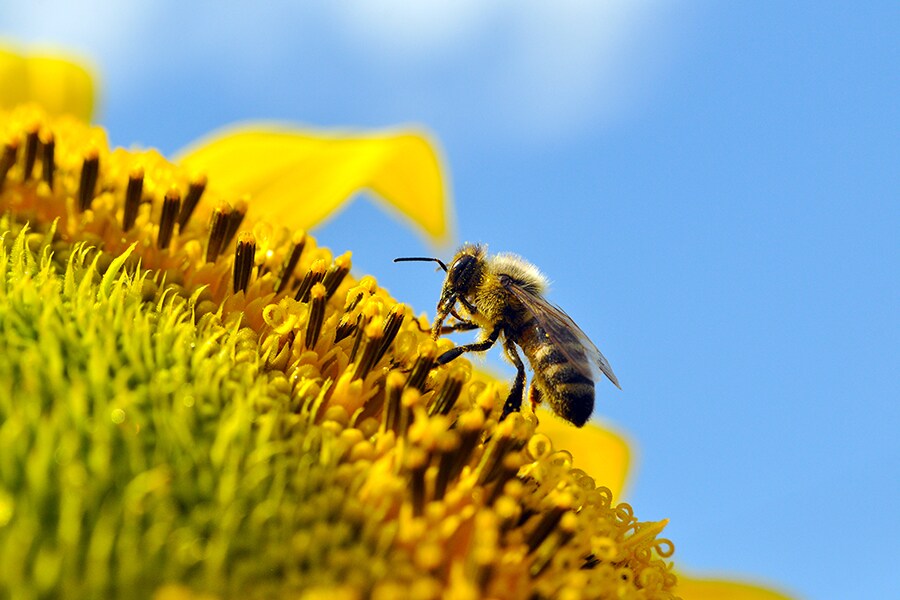
How pollution from cars is making it harder for bees to find flowers
By AFPRelaxnews | Oct 5, 2023
Field experiments carried out by researchers at the University of Birmingham suggest that bees' ability to find flowers is hampered by air pollution
 [CAPTION]
Bees' ability to find flowers could be hampered by pollution from cars, scientists find.
Image: Shutterstock[/CAPTION]
[CAPTION]
Bees' ability to find flowers could be hampered by pollution from cars, scientists find.
Image: Shutterstock[/CAPTION]
Crucial to our survival, bees face multiple threats from pesticides, climate change, viruses and more. Now, it seems that there's a new addition to the long list of dangers they face, as pollution emitted by cars is harming their ability to find flowers, according to research by scientists in the UK.
_RSS_Field experiments carried out by researchers at the University of Birmingham suggest that bees' ability to find flowers is hampered by air pollution. These insects rely on volatile organic compounds (VOCs), which guide them to the flowers from which they collect nectar. But high ozone levels disrupt bees' ability to recognize the smells given off by flowers, making them harder to find by scent. To come to this conclusion, the researchers conducted an experiment in a large wind tunnel, simulating the scent of a flower in order to assess the distance it traveled in relation to different pollution levels.
"Pollinating insects use floral odors to find flowers and learn to associate their unique blend of chemical compounds with the amount of nectar it provides, allowing them to locate the same species in the future," the researchers explain in a news release. They found that as ozone levels increased, the distance to which the flower's fragrance spread decreased. In addition to this reduction in spread, the scientists noted a change in the chemistry of the flower fragrance, which can be explained by the fact that certain compounds "reacted away much faster than others." "Ground-level ozone typically forms when nitrogen oxide emissions from vehicles and industrial processes react with volatile organic compounds emitted from vegetation in the presence of sunlight," the study authors sate in their news release.
Also read: Air pollution from fires hits world's poorest hardest: study
A negative impact on wildflower abundance
In this experiment, bees were trained to recognize the same mixture of scents, then exposed to the new ozone-modified odors. The research showed that 52% of honeybees recognized an odor at 6 meters, and that this proportion fell to 38% when the distance was doubled (12 m). The results also suggest that atmospheric ozone pollution (mainly caused by road traffic and industrial activities) is likely to have a negative impact on wildflower abundance and crop yields. Dr Ben Langford, an atmospheric scientist at UKCEH who led the study said: "Some 75% of our food crops and nearly 90% of wild flowering plants depend, to some extent, upon animal pollination, particularly by insects. Therefore, understanding what adversely affects pollination, and how, is essential to helping us preserve the critical services that we rely upon for production of food, textiles, biofuels and medicines, for example."Professor Christian Pfrang from the University of Birmingham who collaborated on the research said: "We know that air pollution has a detrimental effect on human health, biodiversity and the climate, but now we can see how it prevents bees and other pollinating insects from carrying out their key job. This should act as a wake-up call to take action on air pollution and help safeguard food production and biodiversity for the future."